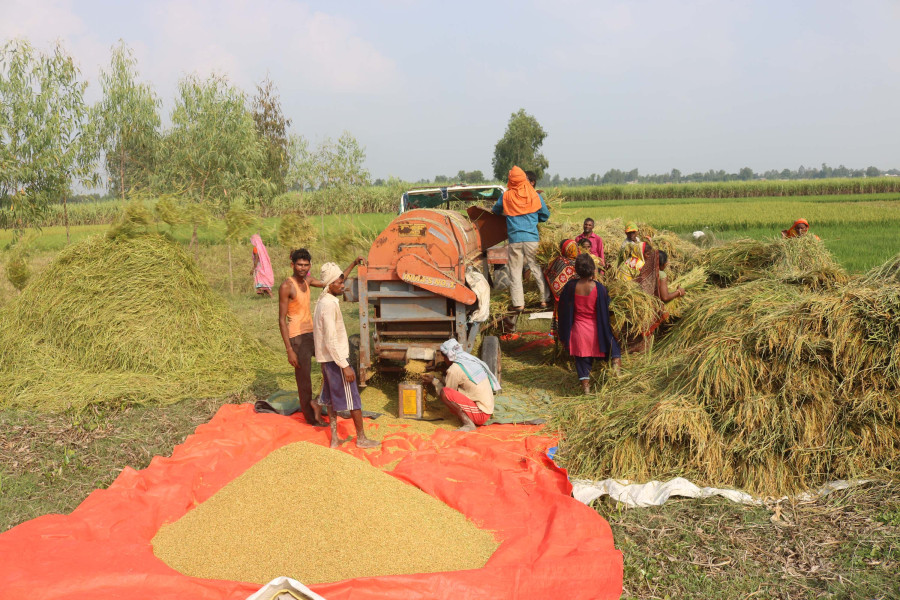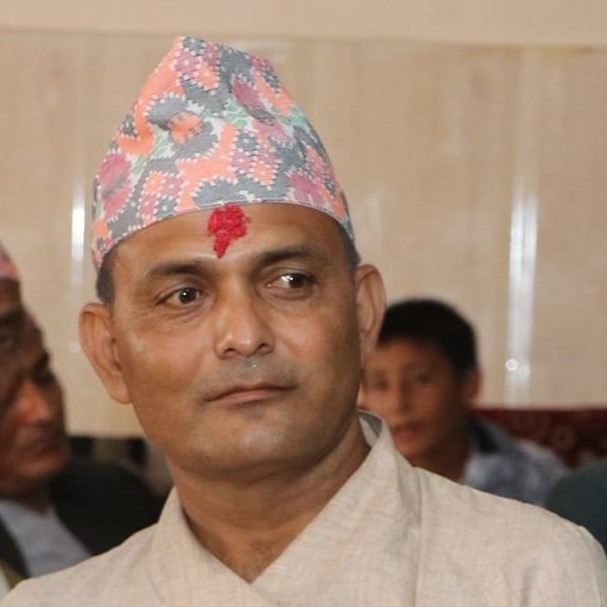Money
Paddy farmers say buyers don't pay the minimum support price
The market determines the prices based on demand and supply, said a trader.
Binod Bhandari
Farmers in the eastern region have complained that exploitative middlemen are depriving them of the minimum support price set by the government for their paddy harvest.
In October, the federal government hiked the minimum support price of common paddy, the price at which the government buys crops from farmers, to Rs26.73 per kg. Last year, the minimum support price was Rs24.60 per kg.
Similarly, the minimum support price for ‘mota dhan’ has been set at Rs25.32 per kg, up from Rs23.31 last year. But paddy growers said that potential buyers were offering them only Rs23.25 per kg for common paddy and Rs22.75 per kg for ‘mota dhan’.
The minimum price is intended to protect farmers and ensure that they make a minimum profit should market prices drop. The minimum support price is a measure taken by the government to protect farmers against sudden slumps in the market price.
The price is what the government will pay farmers for their crops if there are no other buyers in the market. The measure is intended to encourage farmers to grow crops.
According to Morang Merchant Association, Radha 12 paddy which falls in the ‘mota dhan’ category is being sold at Rs22.75 per kg. Sona Mansuli common paddy is being sold at Rs23.75 per kg in the market.
Prices of both types of paddy have dropped compared to last year, the association said. Traditionally, the prices fixed by the association are the final price in the market which is also adopted by Morang and Sunsari districts.
According to one trader, representatives of the rice mills and middlemen gather at Athiti Sadan in Biratnagar daily and determine the paddy rates. This announcement becomes the final price for buyers to purchase paddy from farmers.
Prakash Munda, president of the association, said that the traders may have not offered the minimum price set by the government due to excess supply. “The market determines the prices based on demand and supply,” he said. “If farmers can't sell their harvests at the prices set by the government, the government should buy the crops.”
Indra Bahadur Angbo, Province 1 Minister for Financial Affairs and Planning, said that his province would implement the price set by the federal government. He added that the government would take action against traders who disregard the minimum support price.
“A syndicate of middlemen is dictating the price of paddy in Biratnagar, and the provincial government will not accept that monopoly,” said Angbo. “If they can't afford to pay the minimum price to farmers, they should not buy their crops.”
The middlemen usually fix the price based on market trends across the border in India where the cost of production is lower due to the heavy subsidies provided by the state.
In Nepal, the government provides subsidies only on chemical fertiliser which is not always easily available. Sources at rice mills said that middlemen make hefty profits while buying paddy from farmers.




 9.7°C Kathmandu
9.7°C Kathmandu















